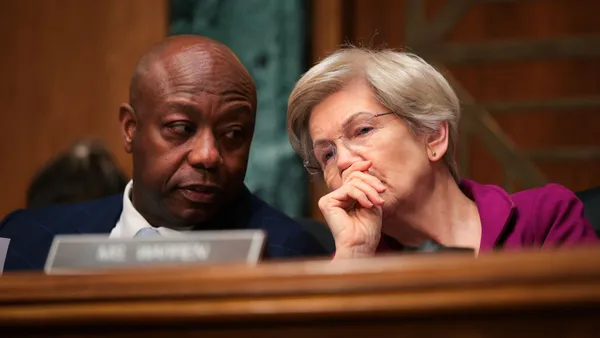Dive Brief:
- The California State University system would be required to increase transparency in its handling of sexual harassment cases under a bill the Legislature passed last week.
- In July, a scathing report from the state auditor's office found Cal State does not adequately or consistently address sexual harassment complaints against employees, leaving cases to fall through the cracks.
- The bill would require the system to detail how it handles and investigates sexual harassment in annual reports to the Legislature and the public. It now heads to Gov. Gavin Newsom's desk.
Dive Insight:
The July audit found some Cal State institutions improperly closed cases, failed to properly dole out discipline or didn't take action against perpetrators at all.
In one case, Cal State campus found a male faculty member responsible for stalking, sexual harassment and sexual violence but didn’t punish him for over five years, according to the audit. When the college finally acted, it only reprimanded the faculty member because it had missed the statute of limitations for more meaningful disciplinary action.
Even before the audit, the system had been under fire.
Former Cal State Chancellor Joseph Castro resigned last year after public criticism arose over his handling of sexual harassment complaints while he was president of Fresno State University.
Castro failed to aggressively respond to multiple complaints of sexual harassment and other misconduct against Frank Lamas, Fresno State’s former vice president of student affairs, a law firm found in 2022.
Under the recently passed bill, introduced by Democratic state Sen. Bill Dodd, Cal State would have to annually report how many sexual harassment reports had been filed, both formally and informally, and the number of those under investigation.
The bill would also require Cal State to detail how long it took to start investigations, how many hearings were conducted and appeals were requested, and the outcomes of cases, including if an informal resolution or settlement was reached. Data would be disaggregated by incidents reported to the chancellor's office and to each of the system's 23 campuses.
The policy would fall in line with recommendations from the state auditor's report, which said institutions should have a process for “documenting, assessing, and responding to trends” in sexual harassment reports.
A separate July audit conducted by a law firm found that Cal State didn't have the necessary tools or operating procedures in place "to support consistent and reliable data-gathering across the system."
Dodd said he intends to propose further legislation addressing the state audit's recommendations.
“We must hold administrators accountable and bring necessary transparency to make sure cases aren’t swept under the rug,” Dodd said in a statement. “As a grandparent and CSU graduate, I am committed to making sure students will feel safe and respected on our campuses. This bill ensures we put the culture and processes in place to make that happen.”
The legislation, which passed the California Senate unanimously last week, received support from outside the political sector.
The California Faculty Association and the CSU Employees Union both backed the bill. And John Vasquez, chair of the Solano County Board of Supervisors, voiced his approval for the legislation Friday, calling the abuse and harassment at Cal State campuses a systemic issue.
Solano County is home to the California State University Maritime Academy, which has repeatedly been accused of mishandling sexual harassment cases, often leaving women and transgender students to fend for themselves.
"The CSU takes seriously the concerns raised by our students, faculty and administrators which is why the CSU is in full support of the recommendations offered by the State Auditor," a system spokesperson said Tuesday. The bill "aligns with those recommendations by ensuring the CSU provides annual reporting on the progress we have made to reform our Title IX policies. We also look forward to continuing our work with the legislature as they develop more comprehensive reforms on this matter."
Sexual harassment and violence is a persistent problem on college campuses. Research shows about 1 in 4 undergraduate women and 1 in 15 undergraduate men report sexual misconduct.
Congress is attempting to address the issue, requiring the U.S. Education Department to survey every federally funded college on sexual violence and deliver a report by 2024. But without funding for the project, the agency's ability to complete the project on time is in doubt.














